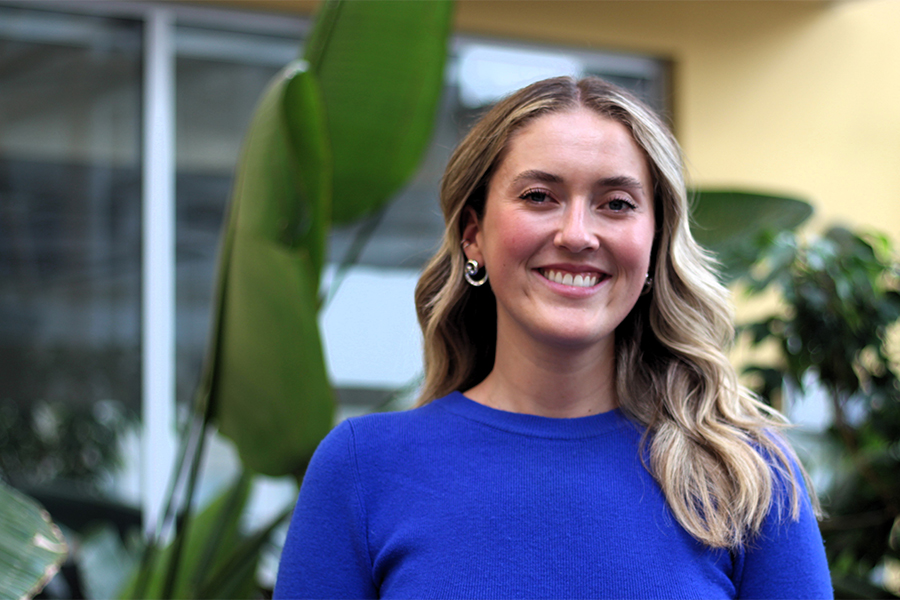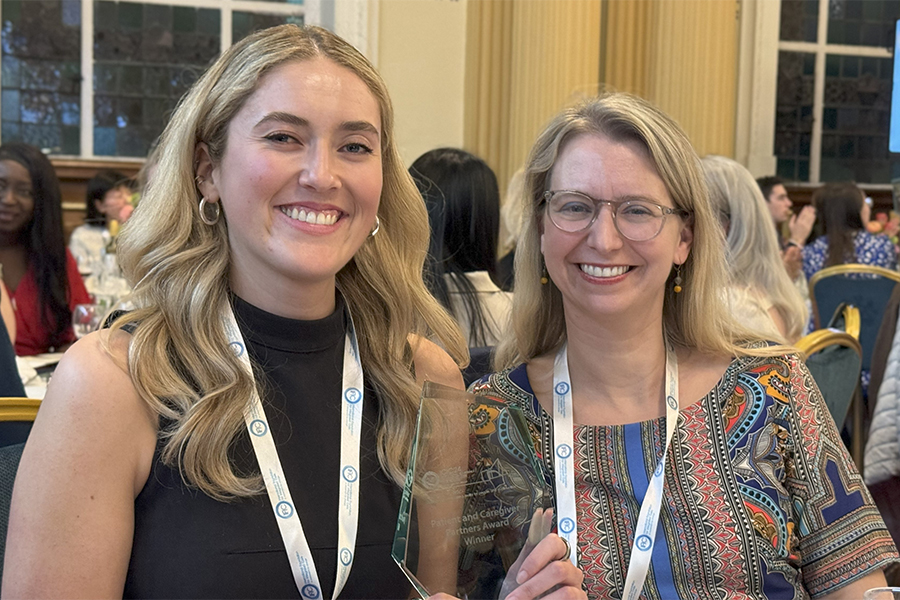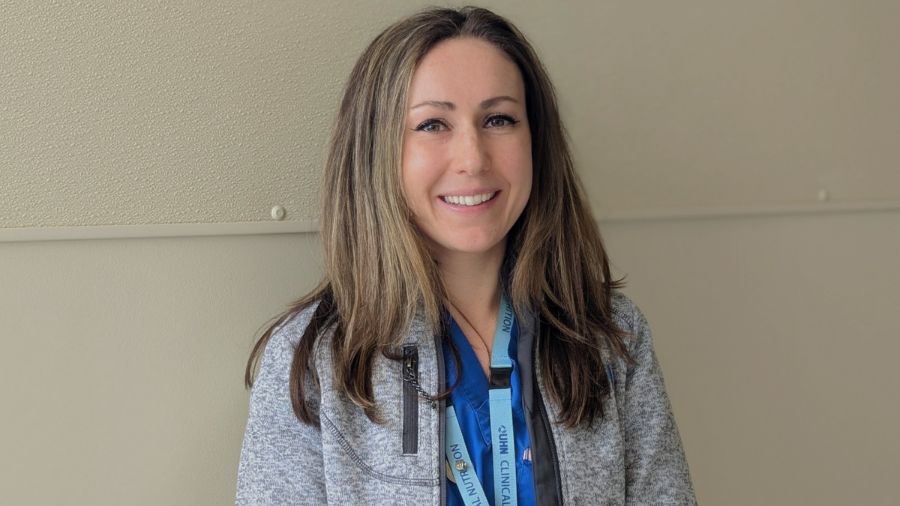
Taking care of loved ones has always been second nature for Isabelle Caven.
From the age of 12, Isabelle supported a sibling with an intellectual disability — managing logistics, navigating complex information and offering emotional comfort. She also looked after a critically ill grandparent. Through it all, she saw herself simply as a devoted family member.
What she didn’t consider herself to be was a “young carer” — and neither did the health care providers around her.
Now 27, Isabelle is working hard to change that perception. She co-led a national research project at UHN focused on ensuring young carers get the recognition and support they need through a new multimedia toolkit created to help health care providers.
“A lot of young people don’t realize they’re caregivers,” says Isabelle, a UHN research associate and second-year medical student at McMaster University. “It’s not something that’s talked about. There can be a lot of stigma and secrecy.
“Having a health care provider acknowledge the weight of those responsibilities can be incredibly meaningful.”
The research project, RISE UP, was a survey that assessed how well health care providers across Canada could identify and support the needs of young carers — people under 25 who deliver unpaid care to a loved one.
The results were clear: nearly all health care providers encounter young carers, but less know how to support them.
With these findings in hand, a team of young carers, health care providers, designers, researchers and national caregiving organizations came together to lead the development of a toolkit to help health care workers better identify, recognize and support young carers in their practice.
“The benefit of validating someone’s experience at that age is huge,” says Dr. Karen Okrainec, a UHN physician and researcher who co-led the project with Isabelle.
“They’re at a developmental stage in life where they’re figuring out what these relationships mean. They’re not doing things their friends are doing. Being able to work with someone to help identify what they need and process a lot of what’s going on is really important.”
The toolkit was made to be accessible, straightforward and easy for busy health care professionals to use. It also features a graphic narrative that brings the difficulties of a young carer’s journey to life.
As it turns out, many of the health care providers surveyed reported similar experiences, having been young carers themselves at some point.
“That finding really speaks to the importance of recognition,” says Dr. Okrainec.
“A lot of people care for their loved ones because it’s just what they do. They’re not necessarily thinking about what they need until it gets to a breaking point — and that’s what we don’t want to happen.”

Isabelle hadn’t recognized that she was a young caregiver until a committee member from her Master’s thesis sent along some of Dr. Okrainec’s work exploring the topic.
“When I first heard the term, it really resonated with me,” says Isabelle. “I remember thinking, oh, wow, this is what my experience was like.”
That realization is what inspired her to reach out to Dr. Okrainec to learn more. Their connection would lead to the successful application of two grants for RISE UP, enabling the duo to embark on a journey to deepen their understanding of young carers’ experiences together.
They were joined by a project team of co-investigators from the UHN’s OpenLab and Healthcare Human Factors team, the Centre for Addiction and Mental Health, the University of Toronto, Sinai Health and Toronto Metropolitan University.
From there, Isabelle formed and led an advisory group of young carers from across Canada. She made it a priority to integrate their feedback at every step of the project.
She says being a young carer is a highly nuanced, complicated topic shaped by different family dynamics, cultural beliefs and personal circumstances.
The toolkit encourages health care providers to value a young person’s role in supporting patients and to avoid being dismissive of their experiences. The suggested approach is to be compassionate, ask questions and learn more about the daily responsibilities of a young carer to figure out how to support them.
Reflecting on the experience, Isabelle says there was a lovely connection amongst the advisory that was very powerful in moving this work forward.
“We all had different caregiving journeys, but there was a shared understanding of how caring for someone has shaped part of our identities as we’ve grown up,” says Isabelle.
And after working with Dr. Okrainec, Isabelle is interested in pursuing a career in family medicine and looks forward to integrating these lessons into her future clinical practice.
“For me, it was really seeing that health care piece of what it means to have a provider recognize the people who are doing a lot of the work in the room — something I feel is currently underemphasized in my training,” she says.
“I’ve learned even a ten-second interaction where a health care provider acknowledges the work that someone’s doing and how challenging it can be is really powerful.”
By Shauna Mazenes

No one ever changed the world on their own but when the bright minds at UHN work together with donors we can redefine the world of health care together.


